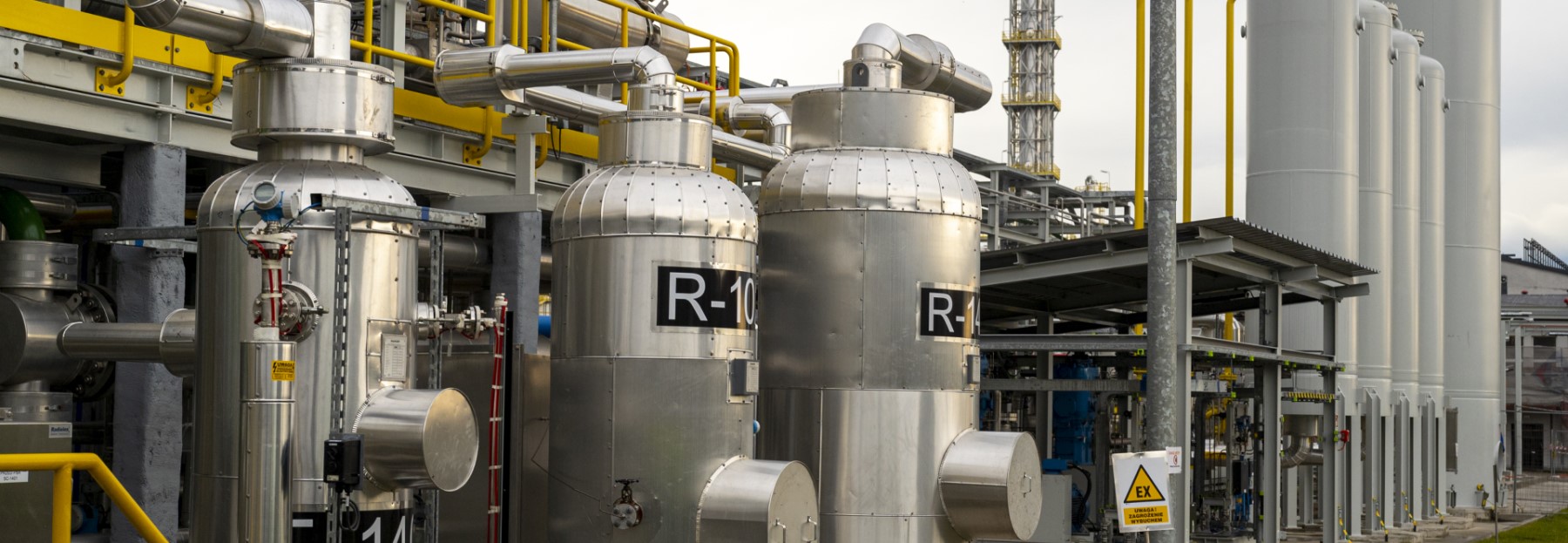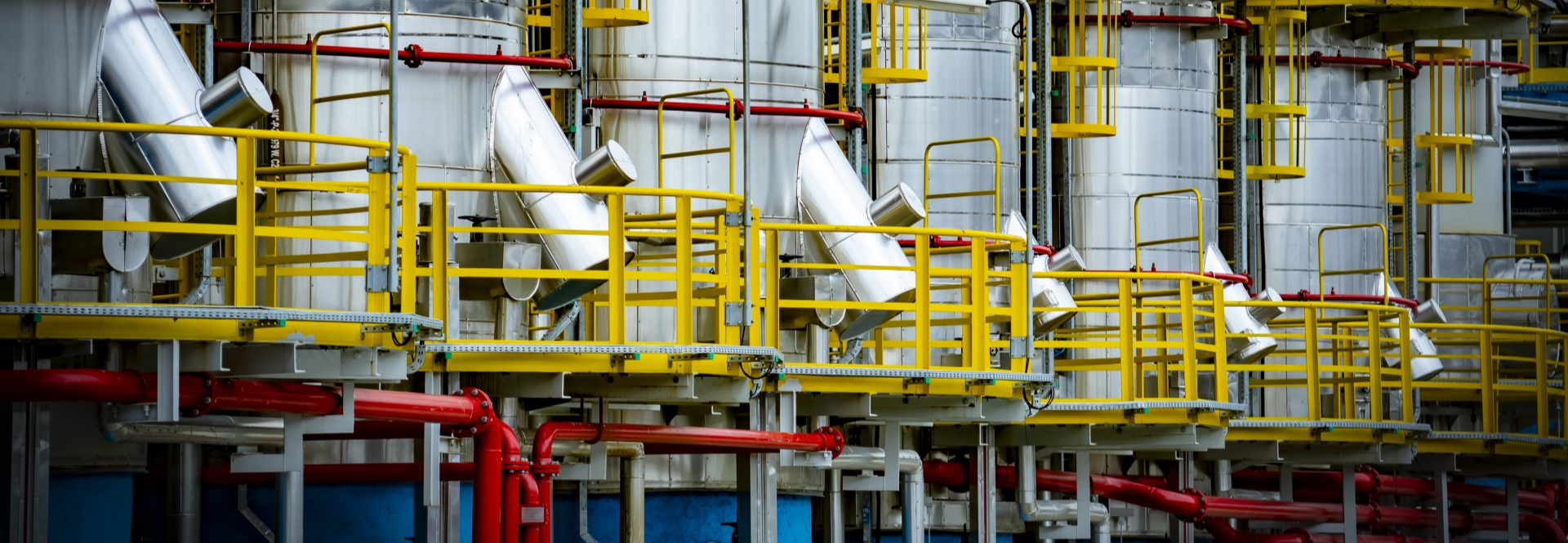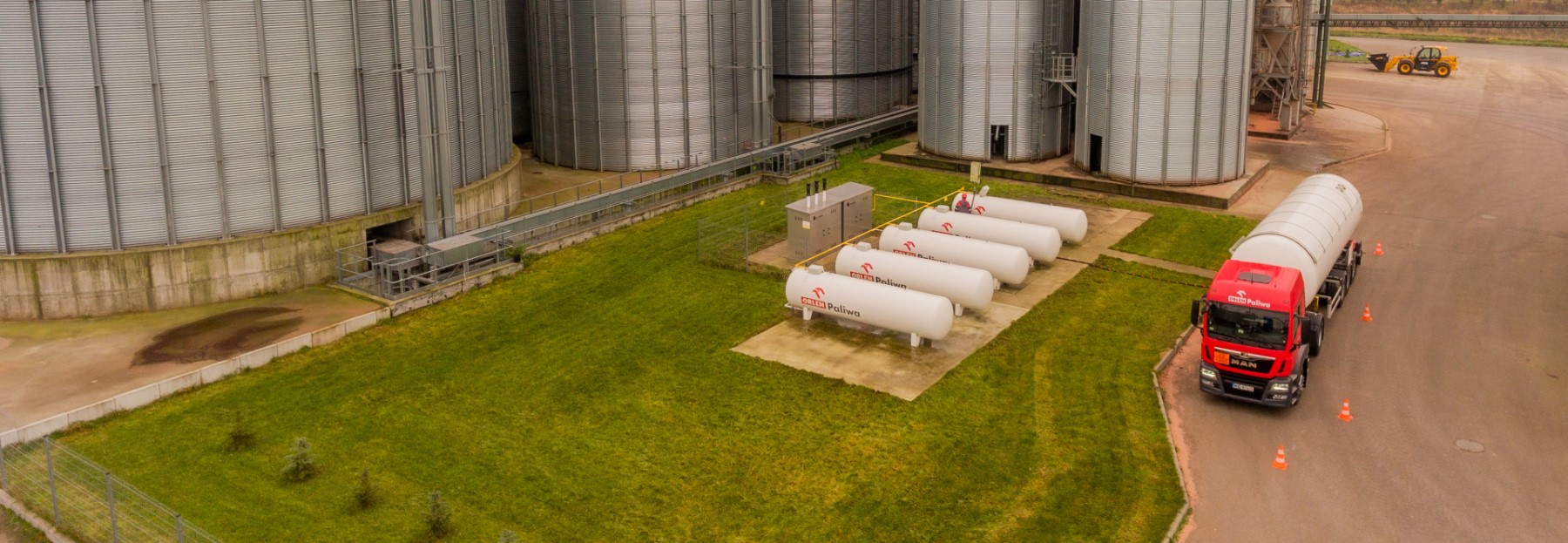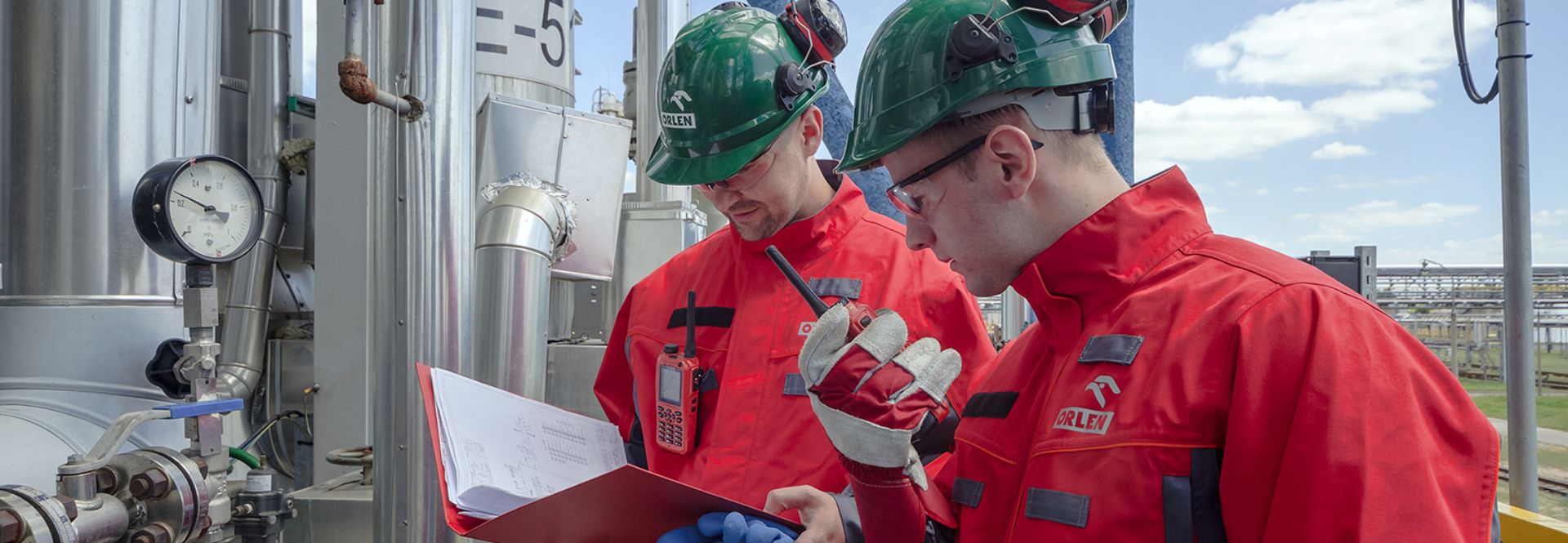Regulatory environment
The ORLEN Group operates on regulated markets, so compliance of the Group’s activities with legal regulations is a key aspect of its business.

-
103-1
-
103-2
-
103-3
Under their regulatory risk management policies, PKN ORLEN and the other ORLEN Group companies engage in a fully transparent and open dialogue based on applicable laws, which involves reviewing drafts of new legislative solutions at the national and EU legislation level, coordinating the Group’s relations with the regulators, control and supervisory authorities, and obtaining and managing permits and authorisations.
Below are presented key opportunities and risks arising from the regulatory environment in Poland in connection with the ORLEN Group’s business.
Risk related to the impact of regulations on the emissions trading system (EU ETS)
The ORLEN Group companies are subject to the EU regulation establishing the greenhouse gas emission allowance trading scheme (the “EU ETS Directive”) that forms part of the EU climate and energy policy until 2030, the European Green Deal and, in the long term, the Paris Agreement. The objective of the EU ETS Directive is to promote reductions in greenhouse gas emissions in a cost-effective and economically efficient manner.
The heat and electricity generation sources of PKN ORLEN and the Energa Group and the production complexes owned by the ORLEN Group, i.e. the refinery, the olefins unit in Płock (PKN ORLEN) and the ammonia unit in Włocławek (ANWIL), are the ORLEN Group’s largest carbon dioxide emitters. The total amount of emission allowances allocated to ORLEN Group companies free of charge in Phase 1 of the EU ETS fourth trading period (2021–2030) under Commission Decision of June 29th 2021 (OJ L 2021/C 302/01), does not fully cover their total emissions volumes, and therefore they purchase additional emission allowances, which generates additional costs.
As part of the Fit for 55 package, the European Commission put forward amendments to the EU ETS Directive that significantly increase the EU’s ambitions to reduce emissions by 2030, from 43% to 62% (with extension of the ETS to maritime transport) relative to 2005. The proposed amendments provide for a lower cap on emission allowances, lower benchmark values for free allowance allocations, the possibility of including CO2 capture and utilisation (CCU) in products, and a separate ETS for road transport and buildings. Additional legislative proposals include a review of the Market Stability Reserve (MSR) mechanism and the introduction of a Carbon Border Adjustment Mechanism (CBAM ) as an alternative to free allocation of emission allowances, including in the case of fertilizers and electricity.
Following the European Commission’s adoption of New Guidelines on certain state aid measures in the context of the system for greenhouse gas emission allowance trading post-2021, work was undertaken to amend the Act on the Compensation Scheme for Energy-Intensive Sectors and Subsectors. The amendments changed the range of sectors eligible for compensation for indirect costs: they cover the refining and hydrogen industries, but not the nitrogen fertilizer production and petrochemical sectors. Once the state aid is successfully notified to the European Commission, the Act will apply to compensation in 2021–2030.
In Poland, ORLEN Group companies covered by the EU ETS continued to engage in work at the legislative and regulatory level in Poland in relation to a draft Act Amending the Act on Greenhouse Gas Emission Allowance Trading Scheme and the Environmental Law. The Act aims to establish the rules of operation of the Energy Transformation Fund (ETF). As a tool for disbursement of financial resources to finance the implementation of capital-intensive measures designed to reduce GHG emissions in the energy sector, the ETF can be expected to increase the share of renewables and enhance energy efficiency in Poland.


Risk related to the obligation to achieve the National Indicative Target and the National Reduction Target
Under the Act on Biocomponents and Liquid Biofuels of August 25th 2006, PKN ORLEN is required to achieve the National Indicative Target (“NIT”), i.e. to ensure the required minimum share of biocomponents in the total volume of liquid fuels and biofuels, both sold on the market and used for the operator’s own needs, in a given calendar year. Failure to achieve the NIT by an obligated entity is subject to a severe penalty, which is calculated on the basis of the formula set out in the Act. The minimum share of biocomponents in a given calendar year is: in the case motor gasolines – 3.2% in 2020–2022, and in the case of diesel oil – 4.95% in 2021; 5% in 2022 and 6.2% in subsequent years. From 2015 onwards, only those biocomponents which meet the criteria of sustainable development set out in the EU and Polish laws may be used to fulfil the NIT obligation. The NIT for 2021–2024 is as follows (base level): 1) 8.7% for 2021; 2) 8.8% for 2022; 3) 8.9% for 2023; 4) 9.1% for 2024; The Act defines conditions under which NIT may be reduced by applying a reduction factor of 0.82 in 2020–2022, and provides for the option to discharge the NIT obligation by paying an emissions charge calculated on the basis of the formula set out in the Act, subject to the achievement of the base level of the NIT in 80% in 2020−2022 and in 85% in subsequent years.
Under the Act on Fuel Quality Monitoring and Control System of August 25th 2006, PKN ORLEN is required to reduce the emission intensity ratio of fuels used in transport relative to the 2010 reference emissions level – the National Reduction Target (“NRT”). The minimum annual emission reduction is 6%.
Failure to achieve the NRT is subject to a severe penalty, which is calculated on the basis of the formula set out in the Act. The Act provides for the option to achieve the NRT jointly with other entities engaging in the production or imports of low-carbon fuels (LPG, CNG, LNG) to Poland, or by purchasing Upstream Emission Reduction (UER) certificates, and from 2021 onwards by paying an emissions charge calculated on the basis of the formula set out in the Act, subject to the achievement of the minimum NRT level in at least: 1) 4% in 2021; 2) 4.1% in 2022;3) 4.5% in 2023; 4) 5% in 2024.
Risk related to the obligation to establish and maintain emergency stocks of crude oil and fuels
The Group is subject to numerous obligations involving establishment and maintenance of emergency stocks of crude oil and fuels, imposed by the Act on Stocks of Crude Oil, Petroleum Products and Natural Gas, and on the Rules to Be Followed in the Event of Threat to National Fuel Security or Disruptions on the Petroleum Market of February 16th 2007 (the “Act on Emergency Stocks”).
Under the applicable regulations, since January 1st 2015 producers and traders have been under the obligation to pay a stocks charge in exchange for a gradual reduction of the level of physical emergency stocks they are required to hold in line with an increase in agency stocks maintained by the Governmental Strategic Reserves Agency.
As a manufacturer and trader, since December 31st 2017 the Group has been required to establish and maintain minimum emergency stocks of crude oil or fuels equal to the equivalent of 53 days of the average daily production of fuels, or imports of crude oil or fuels in the previous calendar year. Furthermore, to comply with the statutory requirements on the establishment and maintenance of emergency stocks of crude oil and fuels, the operator must also pay a stocks charge to the Emergency Stocks Fund, managed by the President of the Governmental Strategic Reserves Agency.
Failure to maintain the required emergency stock levels or breach of other obligations under the Act on Emergency Stocks entails the risk of high administrative penalties.
In 2020, the list of raw materials, products and fuels covered by the system of emergency stocks and being the basis for calculating the stocks charge was extended.
Combating grey market
In 2021, PKN ORLEN was actively involved in legislative processes concerning amendments to tax and administrative regulations designed to combat the grey market in liquid fuels, which for years has been a problem in the fuel sector.
The Company’s focus was on the planned amendments to the Act on the Monitoring System for the Carriage of Goods by Road and Rail and on Fuel Oil Trade, as well as to the Energy Law. The solutions specified in the proposed amendments are required in order to further tighten tax controls with regard to trading in motor fuels such as gasolines, diesel and liquid petroleum gas (LPG). Despite actions taken by the Ministry of Finance and the National Revenue Administration, including enactment of the fuel market and fuel transport legislation, it is still possible to market petroleum products (decolourised diesel oil originally intended for heating purposes, products with an OXO addition of more than 30%, lubricating oils) which do not meet the requirements for motor fuels. Products that do not satisfy the above requirements have an adverse impact on the competitiveness of fuel producers and businesses that resell products without the excise duty suspension arrangement and do so in accordance with the applicable regulations.
The changes are intended to improve control over trading in these highly sensitive excise goods using the legislative solutions and IT tools (the monitoring system for the carriage of goods) currently available under the Act on the Monitoring System for the Carriage of Goods by Road and Rail and on Fuel Oil Trade of March 9th 2017, which enable continuous monitoring of the carriage of gasolines and diesel oil and as well as trading in (sale of) those excise goods. The proposed amendments to the Energy Law will make it possible to curb irregularities in liquid fuel trading, especially in lubricants, and will ensure transparency of trading in the areas which have not been monitored to date.
Since 2021, the Group has also been actively involved in developing the Fuel Platform ICT system. The requirement to develop the system was imposed on the Governmental Strategic Reserves Agency, and its purpose is to enable collection and analysis of data submitted by businesses engaged in the production, importing, exporting, trading (in Poland and abroad), storage and handling of fuels, as well as migration of processes required by law to electronic platforms. The main goal of the system is to enhance effective control of the fuels market. The development of the Fuel Platform will ensure tighter control over the fuels market by enabling comparison of data submitted by fuel companies and providing fuel market regulators and control authorities with on-line access to that data. PKN ORLEN also takes part in legislative work concerning the Trade Inspection’s new powers and responsibilities regarding liquid fuels (extending the scope of diesel oil inspection), which is expected to improve effective control of the liquid fuels market.
In addition, PKN ORLEN engaged in initiatives to increase control of the liquid fuels market through dialogue with the authorities regulating the liquid fuels market in Poland, in particular with President of the Energy Regulatory Office, President of the Governmental Strategic Reserves Agency, Minister of Finance – National Revenue Administration, Minister of Climate and Environment, and Minister of Infrastructure, as well as through close cooperation with the Group’s customers and trading partners.


Monitoring of the transport of certain goods (the SENT system)
In 2018, the Act on the System for Monitoring the Road Transport of Goods, i.e. the SENT system, was extended to include the monitoring of the rail transport of tax-sensitive goods. In addition, the Act was amended to enable the tracking of shipments (with the use of locators). The above changes, combined with the previous solutions introduced by the fuels package and energy package, are aimed at consolidating the positive effect of curbing the grey market by increasing the effectiveness of supervision.
In 2019, those regulations were supplemented with the ‘heating fuels package’, which provides for the use of the SENT system to ensure more effective control of fuel deliveries to consumers, and the range of fuels subject to monitoring was expanded to include LPG. The purpose of the regulations is to counteract excise tax fraud, for instance by replacing paper excise declarations issued by buyers of fuel oils to confirm the receipt of fuel delivery with electronic delivery confirmations, combined with monitoring under the SENT system, and to eliminate illegal use of liquefied gas intended for heating purposes as transport fuel.
The Group is actively involved in all stages of legislative work on the SENT system, including on extending the scope of transport monitoring to new categories of sensitive goods and excluding from SENT the monitoring of transport of goods covered by the EMCS PL2 system.
Management of hydrocarbon exploration, appraisal and production activities
These activities are managed by the Company based on the appropriate integrated management system developed and implemented by ORLEN Upstream The main legislative act governing business activities of the ORLEN Group’s Upstream segment in Poland is the Geological and Mining Law. In 2018, the Law was amended by introducing the second (in addition to a tender) procedure for granting hydrocarbon licences, i.e. an open door procedure, under which a tender may be organised at the request from an entrepreneur. The amendments also clarified the rules related to an entrepreneur’s right of first refusal. Now, an entrepreneur may apply within a statutorily defined timeframe for the establishment of mining usufruct with priority over other parties. In addition, the structure of joint operations agreements, which have long been commonly used in other countries, has been modified. The provision requiring that the operator’s share in costs and profits from joint operations exceeds 50% has been deleted. The new regulation allows more freedom to conclude such agreements and does not jeopardise their proper performance as the operator will continue to be responsible for discharging its licence and statutory obligations.
In the fourth quarter of 2021, the government submitted for consultation and feedback a draft amendment to the Geological and Mining Law, which envisages the creation of a new central administration department called ‘GEOLOGY’, strengthening of the legal protection system for documented mineral deposits in Poland to enable their effective management, enabling CO₂ storage in rock mass, both offshore and onshore, and in hydrocarbon deposits, as well as underground tankless storage of substances, including hydrogen.
It should also be noted that the initiation and conduct of geological and mining activities requires compliance with certain requirements other than those provided for in the geological and mining law. These include such aspects as the environmental impact of such projects, spatial planning and development, waste management, water management and taxation.

